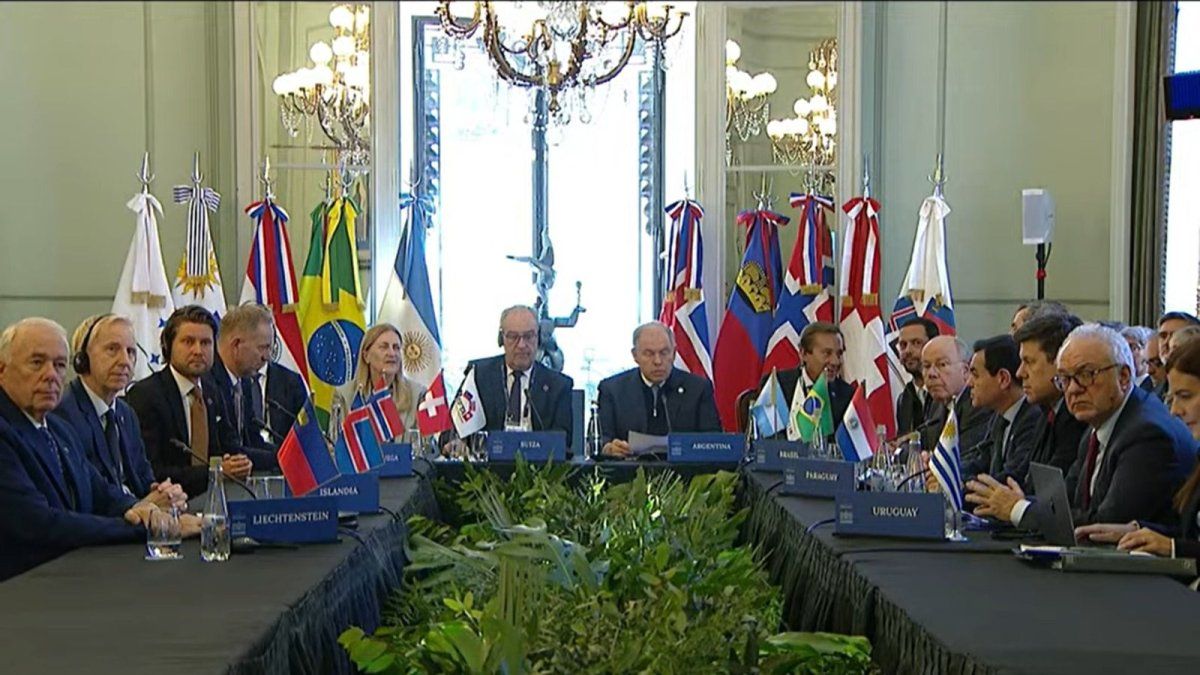Biting Alfio’s ear, Turiddu challenges Alfio to a duel: “Of course it shouldn’t sound dirty and ugly, but it has to seem that way,” says conductor Enrico Calesso, describing the music of the scene in Pietro Mascagni’s opera “Cavalleria rusticana”. He smiles: “I know what violence I do to the musicians with their phenomenally beautiful, warm sound culture when I force them to do it,” the Italian from Treviso bows to the Bruckner Orchestra Linz, at whose podium he performed in “Don Giovanni” in 2016. stood for the first time.
The 49-year-old has been a permanent guest conductor at the Landestheater Linz since 2020. His fourth musical direction at the house invites you to a double premiere on Saturday: “Cavalleria rusticana” can be experienced together with Leoncavallo’s “Pagliacci”.
Music, a fleeting art
Yesterday the main rehearsal of both verismo-style operas took place, after which Enrico Calesso took the time to chat in the music theater’s café in perfect German.
He came to Vienna 23 years ago to study conducting. A week after he graduated with a degree in philosophy from the University of Venice, where he also studied piano, organ, composition and choir conducting. “As a 16- or 17-year-old, I just wanted to understand how to handle an orchestra and a score,” he remembers. His first small engagements as an accompanist and then as a conductor sparked his passion for the baton.
Calesso will be general music director in Würzburg until 2025 and will also be music director in Trieste from January. He will stay in Linz “as long as people like me here,” the father of two hopes for a long collaboration with the Bruckner Orchestra: “I admire the incredible repertoire they have to manage. And yet they are always brilliantly prepared.” Does the philosopher in him influence the musician? “Yes. It is a very dialectical relationship. Philosophy and music are the complete opposite of each other. The task of philosophy is to reveal a universal truth,” which is impossible in a transient world: “We are born and die, we have “There is nothing in our world that is stable and eternal. There is no absolute truth because everything is in motion, evolving and decaying,” just like in music. “Music most contradicts any idea of eternity that philosophy seeks. It seeks its truth in time, in movement. Music is the only category that uses time.”
What does this volatility mean to him? “In the beginning, as a conductor, I was looking for an interpretation that would last forever. That was wrong. The same symphony is never the same symphony, even if the same orchestra plays it under the same conductor. The philosopher in me wants to set clear rules and principles, but The musician has to live with the fact that everything arises from the moment and is only true in that moment.”
Wars are waged for revenge
Even on Saturday, when these unique moments lead into two sound worlds – the “Central European” one in Leoncavallo’s “Pagliacci” (1892) and the “Mediterranean” one in “Cavalleria rusticana”, which premiered in 1890 – he plays on the wildly blazing fire in both works about love, betrayal and jealousy, both of which lead to deadly acts of revenge.
In the end, the rivals of “Cavalleria” face each other in a duel, “a revenge that was socially accepted and even demanded at the time,” says director Alexandra Liedtke. On the other hand, there is murder on the open stage in “Pagliacci”. There are only two years between the premieres of the works, “in which a social change took place,” says the Dortmund native, pointing to an oppressively current parallel to the present: “Revenge makes us wage wars today.”
Double premiere on November 18th
- “Cavalleria rusticana” is a one-act melodrama by Pietro Mascagni, premiered in Rome in 1890, based on the novella and play by Giovanni Verga. The play takes place in Sicily. Turiddu promises marriage to the young farmer’s wife Santuzza, who loves him, but leaves her for Lola, who he loves but is married. Santuzza then suggests the liaison to Lola’s husband, who challenges Turiddu to a duel.
- “Pagliacci” (Bajazzo is a two-act drama by Ruggero Leoncavallo and premiered in Milan in 1892. A theater group led by Canio announces a comedy evening: reality and fiction combine fatally when the jealous Canio discovers his wife’s affair and stabs her and her lover on stage.
- Dates, tickets: 0732 7611-400, www.landestheater-linz.at
My themes
For your saved topics were
new articles found.

info By clicking on the icon you can add the keyword to your topics.
info
By clicking on the icon you open your “my topics” page. They have of 15 keywords saved and would have to remove keywords.
info By clicking on the icon you can remove the keyword from your topics.
Add the topic to your topics.
Source: Nachrichten




